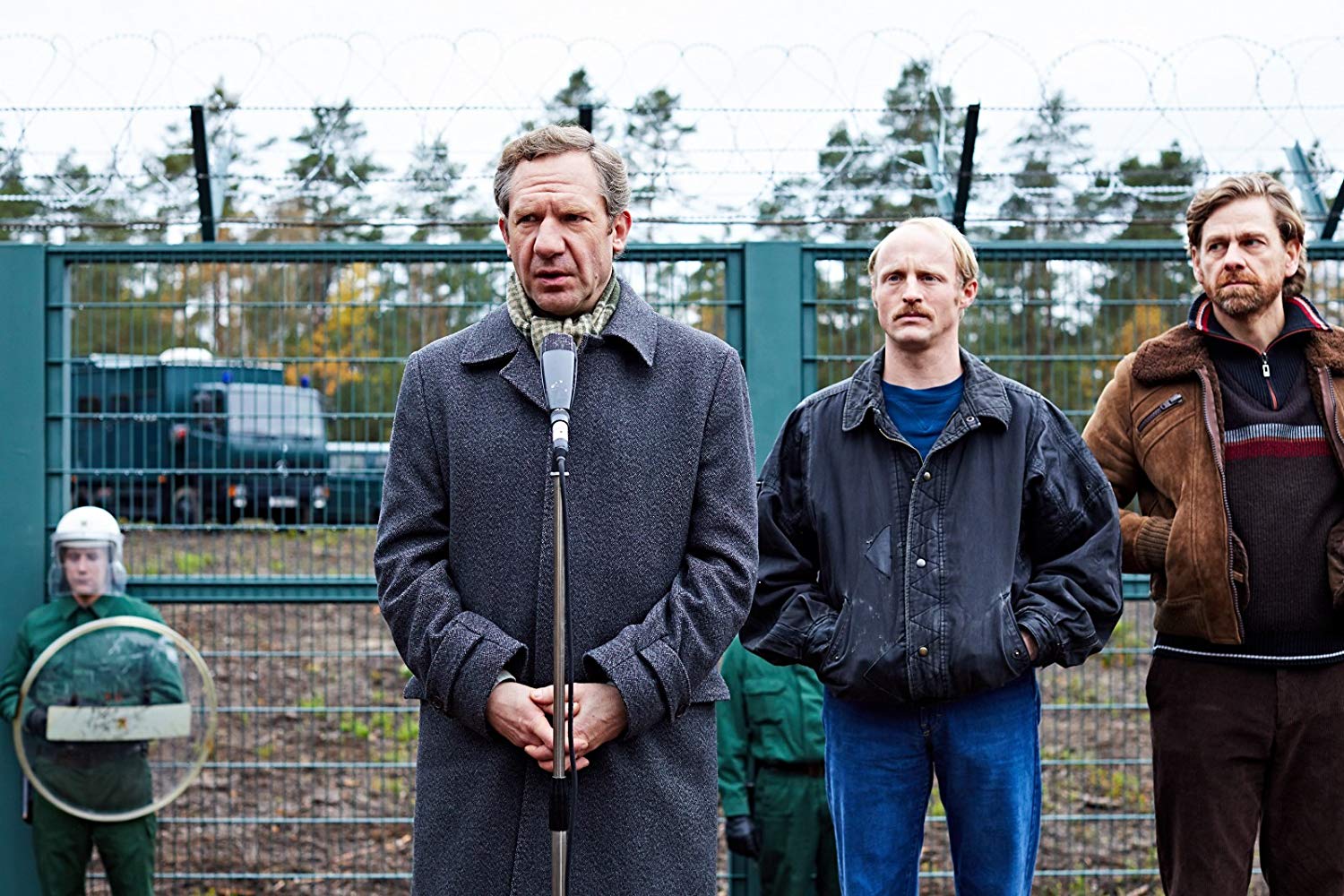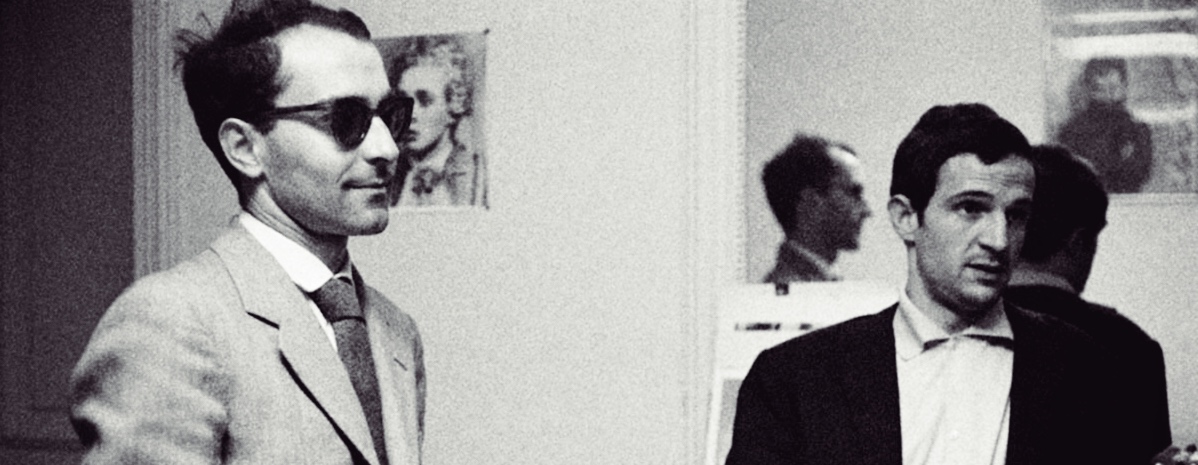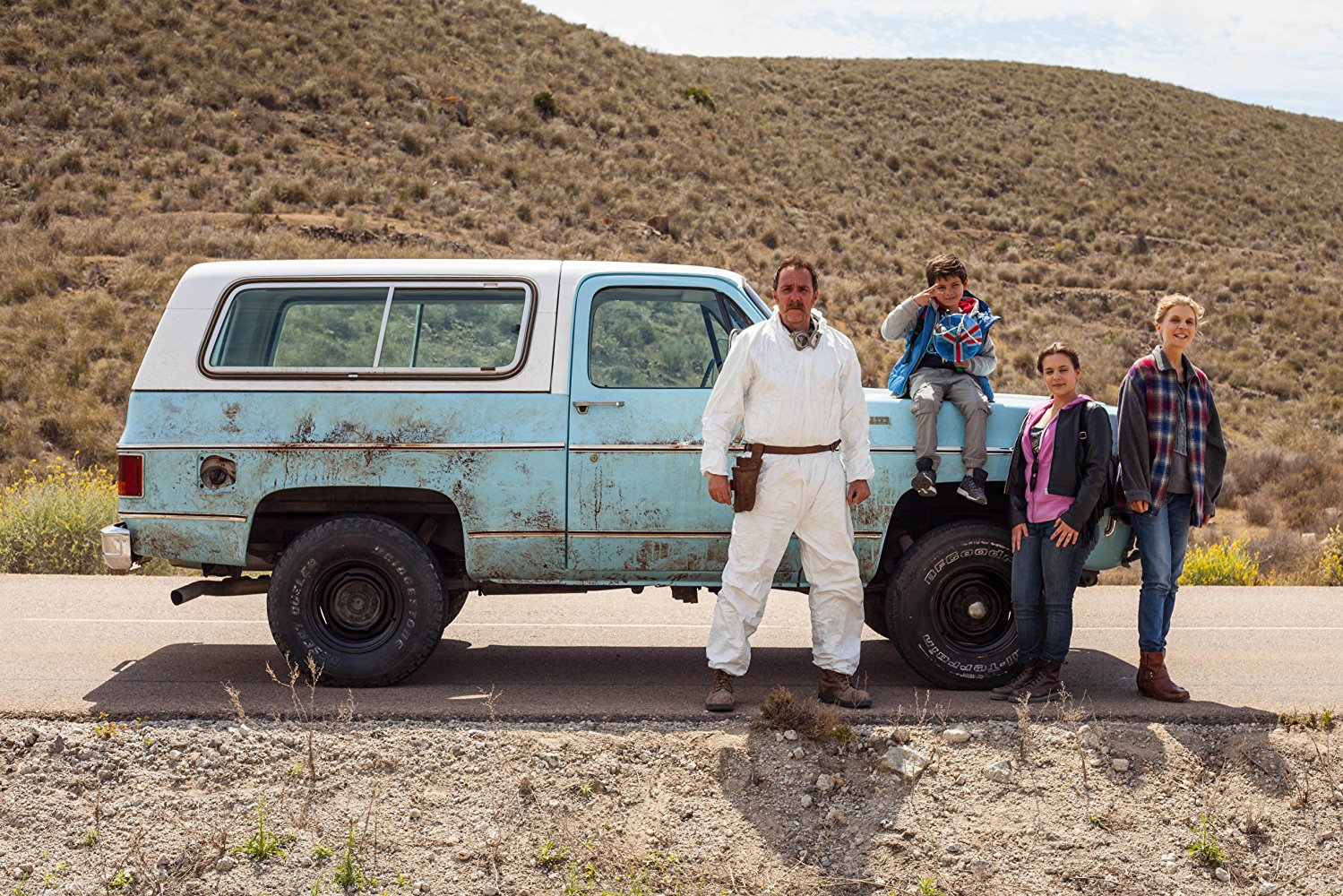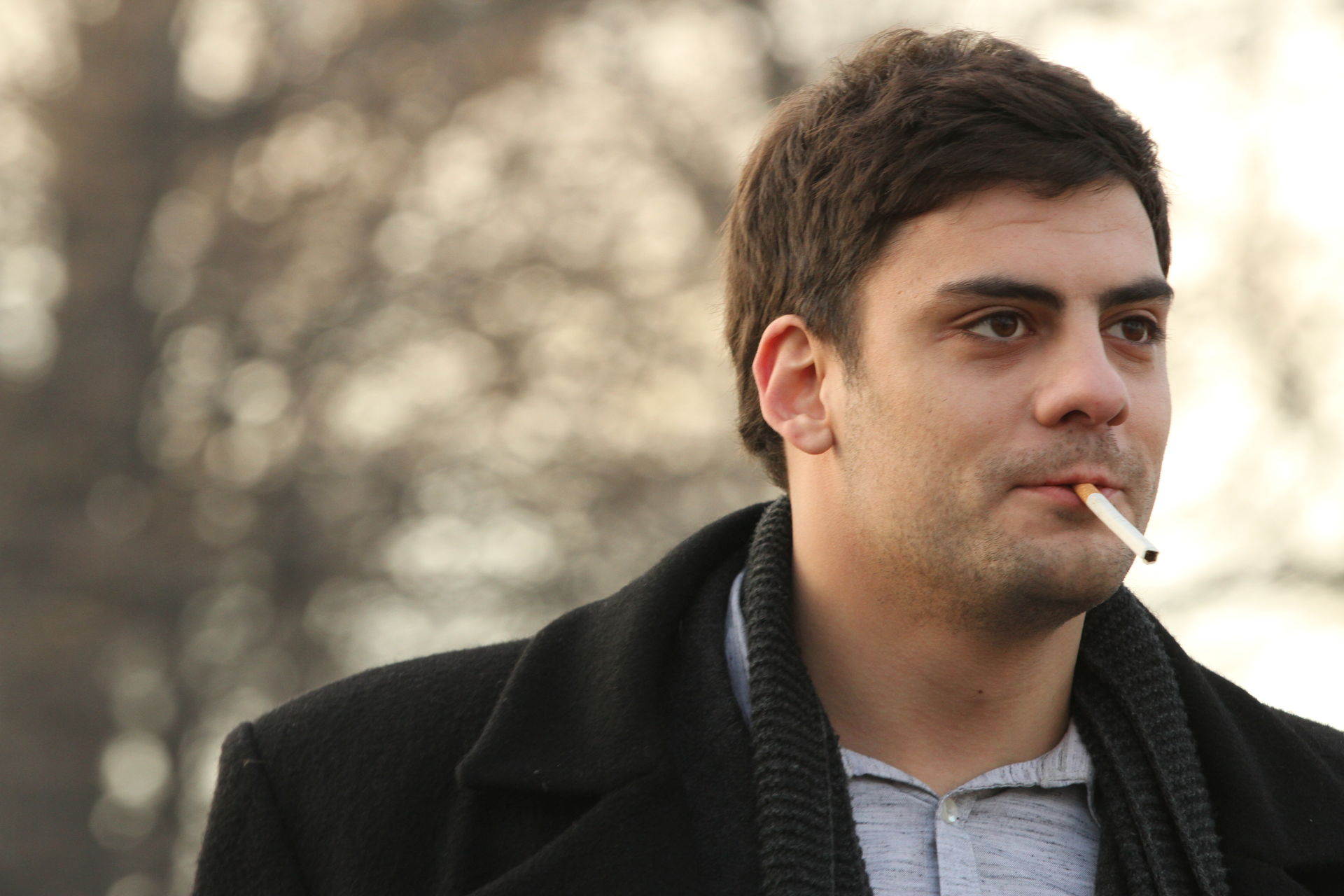
شهرستان شوآندورف، پالاتیناتهی علیا، بایرن، آلمان غربی، ۱۹۸۱. میشود اسمش را گذاشت تالار اجتماعات شهر؛ هرچند اسمش این نیست. همهی میزها شلوغ است. شهروندان نشستهاند روبهروی هم و همینطور که دارند حرف میزنند و سیگار میکشند، لیوانهای بزرگ آبجویشان را سر میکشند. حرفهایشان ظاهراً دربارهی گذران زندگی است؛ اینکه چگونه میشود زندگی را بهتر گذراند و بهتر به نتیجه رسید. هر لیوانی که خالی میشود دوباره پُرَش میکنند.
کمی آنسوتر، در اتاقی که نمیدانیم کجا است، مردی که نمیدانیم نامش چیست، روبهروی آینهای نشسته و همینطور که دارد متنی را میخواند و کلمههایش را خط میزند و کلمههای تازهای به جایشان مینشاند، خودش را در آینه میبیند. به چیزی فکر میکند که نمیدانیم چیست و زیر لب کلمههایی را میگوید که هیچ نمیشنویم. مردی که در اتاق ایستاده و سیگار میکشد از او میپرسد «چی شده هانس؟ اونها منتظرتن.» مردی که حالا میدانیم اسمش هانس است، بهجای آنکه خودش را در آینه ببیند، سرش را برمیگرداند و به دوستش نگاه میکند. بعد کاغذی را که اینهمه وقت صرفش کرده برمیدارد، مچالهاش میکند و از جا بلند میشود و دری را باز میکند که میرسد به جمع شهروندانی که روبهروی هم نشستهاند.
هانس میرود پشت روی صحنه و پشت میکروفونی که معلوم است بهخاطر او گذاشتهاند آنجا میایستد و شروع میکند به حرف زدن: «یاران؛ دوستان و همراهان عزیز؛ دلم میخواهد سخنرانی پرشوری را ارائه کنم. حتا روی کاغذ هم نوشتمش. اما شنیدن حقیقت برای همهی ما بهتر است. باور کنید کار آسانی نیست اصلاً. هیچکس اینجا نیست که بتواند زمان را به عقب برگرداند. حتا من هم که فرماندار این استانم نمیتوانم این کار را بکنم. تحول ساختاری اجتنابناپذیر است. ما هم باید آیندهنگر باشیم.»
آیندهنگریای که هانس شویرر از آن حرف میزند، تن دادن به مناسبات تازهای است که هر جامعهای برای رسیدن به آیندهی بهتر و روشنتر باید آن را بپذیرند. همین است که هانس شویرر را به آدمی بدل میکند که هرچند بر پایهی آدمی حقیقی ساخته شده، اما شباهتش را به قهرمانهای قدیمیتر نمیشود پنهان کرد. از این جهت واکرسدورف واقعاً به آن فیلمهای افشاگری شبیه است که در دههی ۱۹۷۰ به بخش مهمی از سینمای امریکا بدل شدند؛ فیلمهایی دربارهی رابطهی نظام حاکم و شهروندان و حقوق شهروندیای که نظام حاکم، هر بار به دلیلی، ترجیح میدهد آن را زیر پا بگذارد و به برنامههای پنجساله و دهسالهاش برسد؛ بیاعتنا به مردمی که زیر بار سنگین زندگی از نفس میافتند.
در این فیلمها معمولاً آدمی هست که هرچند از دل نظام حاکم درآمده، یا در خدمت نظام حاکم است، یا منفعتش ایجاب میکند که با نظام حاکم باشد، ناگهان یا کمکم، با حرکتی صدوهشتاد درجه، به جبههی مردم میپیوندد که قاعدتاً مخالف بعضی سیاستهای نظام حاکم است و حرف آنهایی را که صدایشان به گوش هیچکس نمیرسد، یا کسی نمیخواهد صدایشان را بشنود، به زبان میآورد.
هانس شویررِ واکرسدورف، که اولین نمایش آسیاییاش اردیبهشتِ گذشته، در سیوهفتمین دورهی جشنوارهی جهانی فیلم فجر بود، یکی از این آدمها است؛ فرمانداری که در بزنگاه زندگیاش، در لحظهای که میتواند آیندهی سیاسی و مالی درخشانی برای خودش دستوپا کند، ترجیح میدهد دستور نظام حاکم را اجرا نکند و در جبههی مردمی بایستد که چیزی جز حقوق اولیهی خود و البته عدالت نمیخواهند.
اما این درست همان چیزی است که در دموکراسیِ آلمانِ آن سالها زیر پا گذاشته میشود. نظام حاکم است که ظاهراً خیروصلاح مردم را میداند و خود مردم ظاهراً هیچچیز نمیدانند و بهتر است در هیچ کاری دخالت نکنند. آنها تشخیص دادهاند که بهتر است تأسیساتی برای فرآوری سوخت در واکرسدورف بسازند و هیچ اعتنا نکنند به اینکه اگر فاجعهای مثل فاجعهی چرنوبیل اتفاق بیفتد چه باید کرد؟ در چنین موقعیتی است که آدمهایی مثل هانس شویرر ترجیح میدهند طرف مردم بایستند و عواقب ساختن چنین تأسیساتی را یادآوری کنند. پول و دستمزد بالا و مسئولیت بیشتر البته مهم است، اما مهمتر از آن جان مردمی است که این سیاستمداران را انتخاب کرده و به آنها اطمینان کردهاند.
بااینهمه آنچه هانس شویرر، این فرماندار معترض و مردمی را، به یک چهرهی نمادینِ مردمگرا در آلمان غربیِ دههی ۱۹۸۰ بدل میکند، شک در این نکتهی ظاهراً بدیهی است که شاید هر آنچه حکومت میگوید درست نباشد و شاید حق آن چیزی است که از مردم دریغش میکنند. فرمانداری مثل هانس شویرر، مثل هر مقام مسئول دیگری، قاعدتاً مجری دستوری است که از مقامهای بالاتر میرسد؛ بدون اینکه عواقب این دستور را بسنجد. اما وقتی فرماندار هم چیزهایی مثل مسئولیت مدنی و شهروندی و البته اخلاقی را به یاد بیاورد، احتمالاً همهچیز دستخوش تغییر میشود.
اینجا است که دیگر نمیشود آن نگاه قیّممآبانهی نظام حاکم و آن برخورد غریب را باور کرد که مردمِ آلمانِ آن سالها را هیچکاره میشمارد و در عوض باید به فکر چارهی دیگری بود؛ همانطور که هانس شویرر به اینکه راهاندازی یک نیروگاه هستهای واقعاً گرهی از کار فروبستهی مردم این منطقه میگشاید یا نه، شک میکند.
شک همیشه راهِ نجات است؛ بیشک و هانس شویرر با ایستادن کنار مردم و سخن گفتن از جانب مردم، رودرروی هیأت حاکمهای میایستد که به هر آنچه میکنند یقین دارند؛ یقینی که بیشک راه نجات هیچکس نیست.



